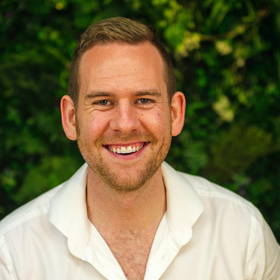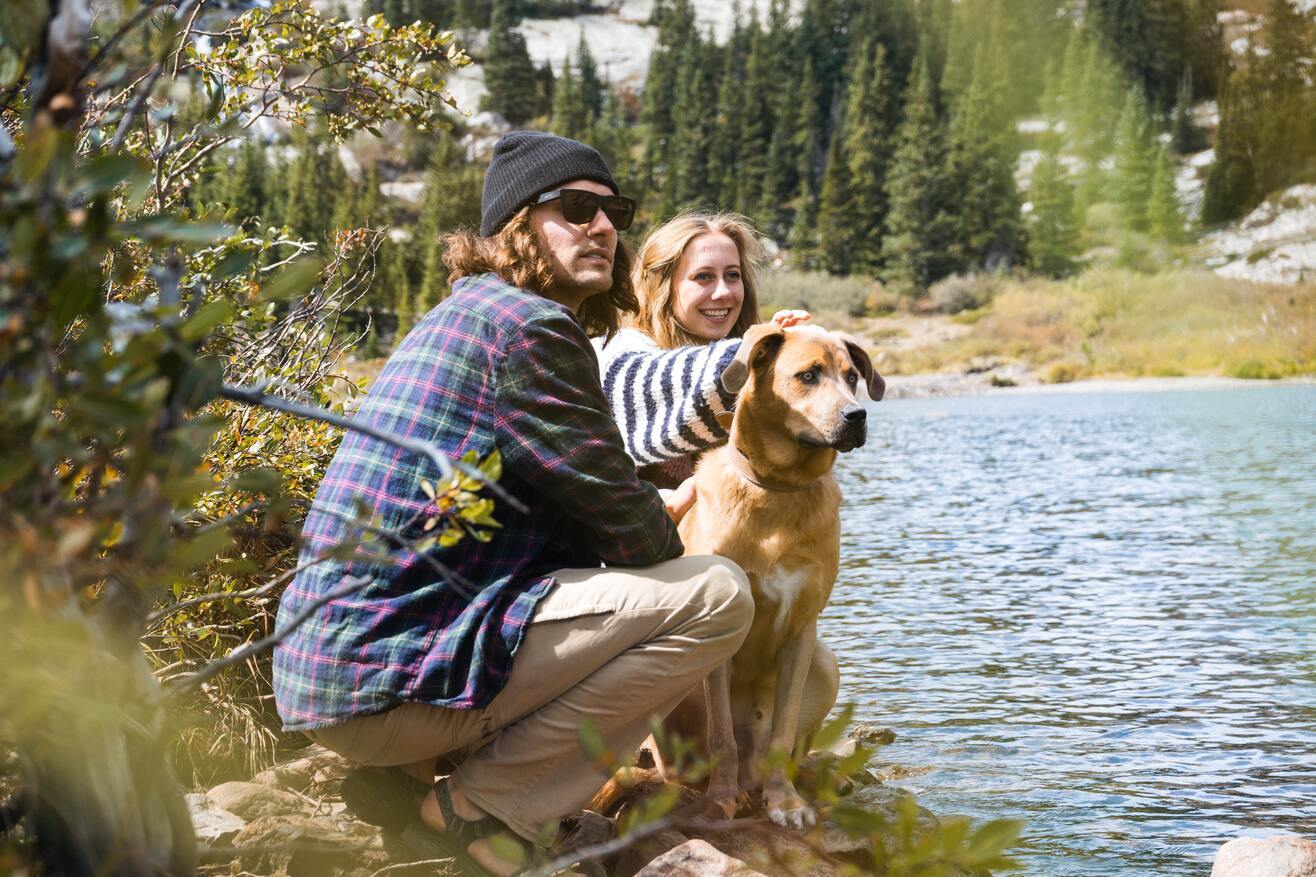It’s already been a year since the pandemic has started. During this time, many of us have been isolated at home, not being able to travel, forced to physically distance ourselves from other people, even from family and friends.
We’ve also been living in fear of not getting infected with the Covid-19 virus and many people have lost their jobs or went bankrupt.
It’s not easy to cope with stress in these circumstances but it’s necessary. We reached out to 22 psychologists and spirituality experts and asked them the following question:
What are some healthy habits that people can adopt to cope with stress during the pandemic?
We received amazing tips that we hope will help you as improve your physical and emotional state.
Shelly Wilson

Healthy habits that we can adopt to cope with stress include being present, adaptable and flexible as well as conscious breathing and clearing the triggers.
Being present involves living in the moment rather than focusing on the future or dwelling in the past. Being adaptable and flexible reminds us to go with the flow rather than being resistant to change, especially when presented with challenges.
As humans, we can intentionally choose healthy practices or habits rather than feeling stuck in patterns.
Conscious breathing is another healthy habit that is easy to incorporate in our daily lives. We breathe naturally and autonomously, which means our bodies know what to do and how to do it.
Anytime we are feeling stressed or overwhelmed, we can focus on breathing in peace, love, ease and compassion as we exhale the fear, worry, doubt and stress.
Two to three times a day for 2-3 minutes or whenever you feel led to do so, take a moment to pause in order to clear your mind and open your heart as you breathe.
Lastly, in those instances that you feel annoyed, bothered, or triggered, in that specific moment, state aloud or in your mind, “This bothers me. This is affecting me. I feel annoyed and stressed. I am feeling overwhelmed.”
Express whatever wordage that would apply. In doing so, you are choosing to recognize and clear the energy at that moment rather than allowing it to build.
Nate Battle

When life takes a turn into the lane of uncertainty, whether gradual or sudden, the resulting impact is usually an increase in your level of stress.
Beyond the immediate adrenaline-fueled response, what happens next is far more within your sphere of influence and control than you may be aware.
It often boils down to a matter of choice. You can choose to allow the uncertainty of things you don’t control to negatively impact you or decide to do something about it.
Coping with stress is in and of itself a choice. Even the word itself implies taking action to deal with and face matters. Life is about decisions. You get to live with the consequences of your choices.
While there are some stress-causing circumstances you have zero control over, you CAN reduce and eliminate other stress areas in your life. Developing this proactive effort as a habit will enable you to handle better what life throws your way. Make it a habit to:
Make a Mental Shift
Adversity and uncertainty provide excellent opportunities to make a mental shift in your mind. You can choose what you will accept, allow, and give permission to be in your life, in contrast with those things in which you will no longer put up.
While there is seldom anything you can do about events, trauma, problems, and issues that have already occurred, you CAN change your response to and acceptance of them.
You are better off to accept and even embrace the unchangeable as if you choose it than to resist it.
Besides being filled with negative emotions, resistance leads to a dead end and, in the end, changes, nothing. Accepting things for how they are, lends itself to focusing on coping strategies and promoting problem-solving skills.
In other words, it can strengthen you mentally, which in turn reduces your level of stress.
For the controllable items, like cleaning your home, decide to pack up those things that no longer serve you, are toxic and unhealthy for you, or simply disturb your peace. Then, for the stuff you can, discard it.
No, you cannot (legally) bag up badly behaving and toxic people, but you can remove and distance yourself or establish boundaries that you will not cross, nor allow them to cross.
Go on an emotional diet!
Decide to let go of the emotional baggage of the past. Emotional baggage is like carrying extra weight on your body.
It is highly unhealthy because it makes your vital organs work harder, causes you to be less agile, and you need to work harder just to move. All this causes excess stress on your mental and even physical health.
Like with food, extract the learnings (the beneficial nutrients) from past challenges, adversities, crises, and upsets, then discard the rest that is not healthy.
Maintain your momentum by practicing thought-stopping; when a negative thought occurs, stop it in its tracks, and replace it with a positive thought – then repeat, often!
Practice the Self-care act of Healing
The stuff in your life that you don’t want in it anymore has probably caused wounds of some type. You must heal from your wounds to grow forward.
There is a saying that goes – “You need to heal from the people the wounded you, so you don’t bleed on the ones that didn’t.” Decide to practice self-care and healing as your top priority, leaving behind the bad while embracing yourself, every moment of life, and the good things to come.
Live in the present
There is no shortage of sayings and slogans that speak to living and being present in the moment. There’s a reason for that – it works! Anxiety is usually an indication you are worrying about something that has not occurred yet – in other words, the future.
Conversely, depression is an indicator you are rehashing something that has already happened – the past.
Life is meant to be lived one moment at a time. Yes, it is prudent to PLAN for the future, but try to avoid moving into that future residence before you’ve closed on it.
As you know, now more than ever, the future is no more guaranteed than it is predictable. Let the challenges that belong to tomorrow wait to be dealt with when and IF they arrive.
Chill!
Yes, an urban term with many meanings, but also sage advice. Break from your routine and do something for yourself, perhaps even by yourself. Something that you enjoy, it may be new to you, or maybe a creative project you’ve not done in a long time.
For example, paint by numbers, gardening, assembling a model airplane/car, playing an instrument, or even just walking outdoors, intentionally looking for the beauty and overlooked in nature in your surroundings.
The objective is to do something positive that will require your full attention and focus while consuming your mind. Besides taking your mind off the crud that causes mental anguish and stress, it has many positive health benefits.
It can be a natural stress reliever in promoting calm and reducing anxiety. It promotes growth, problem-solving, and motor skills and even improves your memory – the right kind. Say safe & be well!
Shelley Meche’tte

Some healthy habits that people can adopt to cope with stress during the pandemic include:
CRY!!: I know this may sound crazy, but stress needs a healthy release. When we do not allow ourselves to release the tension, heartache and frustration that has come with enduring a global pandemic, it is only a matter of time before all of those emotions burst.
Before reaching that boiling point, take some time to just allow all of the stress to flow…through tears. Don’t try to stop them. Don’t try to make sense of them. Just let them be.
Your body knows when you’re done, so don’t rush. Once those feelings have been completely flushed out…take a deep breath and give yourself permission to rejoin the uncertainty of the world again.
TAKE A WALK: Taking a leisure walk is a great way to relieve stress or clear your head. Walking away from what is causing stress allows us to refocus, mainly because we are taking in new scenery.
Removing ourselves physically from high tension/emotional situations creates better decision making opportunities. It helps us release frustrations in a healthier manner, so that we do not inadvertently spew our pain upon others.
INCLUDE YOUR CIRCLE: Don’t be fooled. We ALL need others in our lives, who love and support us. This includes having a solid circle. Many times, when we are going through, we do not make use of this circle. We walk through tough times alone. STOP THAT!
Make it a habit to stay connected. Don’t retreat from your circle when you feel like throwing in the towel. Instead…turn to them, especially during the more difficult times. Having them in your corner will help to strengthen you and show you the beauty in life.
Carlee Myers – Stress Less

One thing we are all coping with right now during this pandemic is navigating things that are outside of our control.
Whether we are worried about the political realities we are facing, if our loved ones will get sick, if the kids will be going to school, you name it, we are all having to deal with a lot of circumstances that are simply out of our hands.
With that in mind, the first step I would recommend in order to manage stress right now is to start looking inward and identify what spirituality means to you.
Here at The Stress Less Company, we define spirituality as the undefined thing that leads us from a state of struggle to a beautiful state of mind. Now, what you choose to connect to can be anything.
You may believe in what we think of as being more traditional such as God, or it can be something more unique and personal to you like the concept of nature, a higher self, or the greater good.
Identify whatever resonates with you, and from there, start engaging in a daily practice of connection to it because when we give ourselves this space to connect to a power greater than ourselves, it helps us to let go of the worry we feel about things outside of our control.
We can’t control other people or global health crises, but we can release these things to the care of that power greater than ourselves so we can have the mental, emotional and physical energy to focus on what is within our control.
One great way to start a more regular spiritual practice is through a process called auto-writing. Think of auto-writing as a form of written prayer. To do this, sit down with a piece of paper and start by writing down your name followed by a colon. Then, write out a question or concern you need guidance on.
Once you have written down your question, write down the name of whatever your spiritual thing is (ie. God, universe, nature, higher self, etc.) underneath your question.
Take a few moments to breathe and connect inward with yourself first, then wait for the answer to flow through your hand and onto the page.
The key is to let it flow out of you, if you feel yourself thinking about what you are writing, it’s not your higher power talking! Through this process, you will find your answer.
It may not always be the answer that you want, and it may not come as clearly as you’d like, but it will usually be the guidance you need to move into a more peaceful and abundant state of being.
Supriya Blair – Dr. Blair Psychology

1. Take inventory of your time and energy.
Are you setting daily priorities every day? Are the activities you are engaging in leading you toward meeting your goals or are they zapping your time and energy? The human tendency is to act out of habit; the pandemic affords us an opportunity to be intentional about what we do and why we do it.
2. Choose one self-care activity each for emotional, physical, spiritual, and emotional wellness.
It is important to note that stress is subjective. What might be stressful for one person might not be stressful for another.
An important reminder: stress is not a status-symbol. When you care for yourself, you give yourself permission to rest and rejuvenate. You give yourself permission to step away from the monotony of achievement and productivity. Rather, you might become proficient in a new art: the art of tender loving care.
3. Laugh.
Laughter results in a biochemical process of reducing stress and releasing feel-good hormones. Laughter also conveys a sense of wellbeing and ease.
Though the pandemic is hardly a laughing matter, finding small ways to create connection through humor can help alleviate a sense of heaviness, overwhelm, and compassion fatigue.
Damon “DaRil” Nailer – Daril

Find Your Stress Reliever
How do you release stress? Personally, I pray, meditate, and visit the gym regularly to let off steam and clear my mind. Some people like to read while others enjoy watching TV, fishing, playing sports, listening to music, taking baths, eating, spending time with friends, etc. Find things that are safe and work best for you, even during these challenging times.
Create a list of scriptures, positive sayings, or uplifting quotes and speak them out loud daily
Words are seeds that contain transformative power. When verbalized, they are released into the atmosphere and will eventually produce an effect at some point.
If you suffer with anxiety/stress, say phrases like, “I am at peace”, “This day will be stress-free”, “I will overcome any obstacle today”, “I am full of joy, strength, faith, and energy.” As you speak, think of yourself as a farmer who has decided to have a productive and successful harvest.
With that being said, only allow positive, encouraging, and inspirational words/seeds to be released from your mouth. Know that “you will have whatever you say”.
Schedule “Me Time”
Many of us are in excessive need of alone time. This is essential for coping with stress and for our sanity. It enables us to decompress, be alone with our thoughts, and just be at peace. Taking a few moments per day to do this can yield great results.
One thing it does is gives us time to relax. We are oftentimes so wound up that we need a little time to exhale. Another benefit is that it gives us the opportunity to have an “aha moment” or a “moment of clarity” where the light bulb goes off, and we receive some great insight.
Living in the fast-paced rat race stops us from doing this often enough, which means our minds are on overdrive, racing all day and all night. When we take a break to isolate, we allow our minds to calm down. This causes us to become clear, open, and tranquil.
Erwin Wils – Millionaire Life Strategy

I recommend writing a journal. At the end of the day, reserve 30 minutes, sit down, go through the day to find at least three things that you are grateful about, and write those down. Can be small things, like the ability to walk, breathe, that the sun is shining.
When you are up to it, add at least three things that you are proud of. Can be small things as well, like you brushed your teeth in the morning, got dressed, finished a task, whatever.
Practicing gratitude and accomplished pride on a daily basis will help you focus on the positive things in life.
As a side effect, your self-confidence will also increase. Stress tends to put your focus on the negative things, so this exercise can really make a difference. Over time you will start noticing you find more and more things and start appreciating life even more.
Declan Edwards – BU Coaching

1. Balance your self-care. Rather than relying on only one form of self-care make sure your self-care plan is varied and adaptable to sudden changes such as lockdowns.
We recommend building a self-care cheat sheet on 1 A4 page that includes a list of 5 activities that look after your physical health and wellbeing, 5 activities that look after your mental stimulation, and 5 activities that look after your emotional wellbeing.
It’s important that you enjoy each of the activities on the list and that at least half of them are ones you can practice at home, for free, and in less than 15 minutes.
2. Practice gratitude frequently. In a world that is rapidly changing it’s easy to overlook how much beauty there still is.
Rather than getting caught up in focusing on all the things that have changed or that you can’t do at the moment make sure you take a few mindful moments throughout the day to consciously recognize some of the things in your life that you’re grateful to still have.
Whether it’s as simple as a nice cup of tea in the morning or it’s gratitude for the people around you taking time to consciously recognize the blessings in your life has been shown by Positive Psychology to decrease stress by up to 40% over 12 weeks!
3. Connect with people. Despite us all being more ‘connected’ than ever before thanks to technology a shockingly large number of people report feeling lonely in their lives.
Whether it be via video call, messages or a good old-fashioned pen pal make sure you prioritize staying connected throughout the pandemic. Feeling part of a community, or a supportive team of people is a really powerful way to stay resilient in the face of stress.
Maria Bougioukos Hill – The Happy Healing Shop

Every time you are triggered by a negative thought, immediately replace it with a positive one.
Your subconscious mind is truly powerful. If a stressed mind can cause and manifest into physical ailments, then the mind also has the ability to do the opposite and heal itself.
You can regenerate, even if you’re injured or going through something difficult. For me, having an incurable chronic pain syndrome taught me that it doesn’t matter what my body is doing; if I’m feeling pain, I still use mental strength to heal faster, to stay empowered, and to stay positive.
It puts a healthy energy field around the body so I could have a miraculous level of healing. I’ve been told many times by my doctors that the speed at which I heal when I have flare-ups is unheard of.
For example, when I get a flare-up, I’ve set my brain to immediately go to healing positive thoughts instead of negative ones. It’s similar to CBT (cognitive behavioral therapy) where you exercise your mind: when a negative thought or emotion comes in, you associate it with a more positive statement so your brain doesn’t go spiraling down that rabbit hole. You’re reprogramming the energy and neuropathways in your mind.
At the end of the day, we are all very powerful beings. Energetic protection starts in our minds. It is so powerful that we can destroy ourselves with it, or we can make superhuman advances with it. Whatever we’re focusing on, we’re going to attract more of it.
Susan Shumsky – Divine Revelation

The most important skill that we need to develop during the pandemic is the skill of intuition.
No longer can we depend on the institutions that we relied upon in the past. We cannot depend on our job, our bank account, our pension, our religious institution, our government, or any other bulwarks of society. We cannot trust the voices in our society that we used to depend on.
Now the only way to be safe and protected and to survive and thrive is to listen to the “still small voice” of inner divine guidance. Our own intuition will guide us through the wilderness. That is the voice we can trust. That is our our higher Self, which is the source of wisdom, creativity, abundance, love, and happiness.
Contrary to popular belief, the truth is that everyone has the potential to be intuitive. Intuition is a teachable, learnable skill. Just like learning to play the piano or learning a foreign language, anyone can learn and develop their intuition.
It just takes instructions and then practice, practice, practice.
When you first begin to practice the piano, you make a lot of mistakes, it doesn’t sound melodious, and no one wants to hear it. But once you have mastered the piano, everyone wants to hear you play.
Similarly, it takes practice to become intuitive. So learn how to listen to that inner voice, and then practice diligently until you master it. And, most importantly, don’t be afraid to make a mistake. Trust that inner voice, follow its guidance, and practice, practice, practice.
Isla Duncan – Mantelligence

The world is currently going through a global pandemic, which has caused a lot of stress to people.
There are a lot of factors that contribute to stress, such as fear of the new disease, loneliness due to the strict public health implementations, and anxiety of not being able to see your loved ones.
With a lot going on, what can we actually do to cope up with stress?
Here are four habits to cope up with stress:
Pause. Take a deep breath and empty your mind.
Stretch. Yoga would help, but a simple stretching exercise will also do.
Find a hobby. Bake a cake, read a book, watch a series, keep a plant, just find something to spend your time on.
Sleep. Sleep is a known stress reliever that’s good both for your mental and physical health.
There are plenty of other things to do that could help you cope up with stress. As long as you have the dedication, you can pull through this.
Fernanda Sarmento – Wise and Fun

Use Lavender oil (if you don’t have a diffuser just add one drop to each wrist).
Most people will tell you about the calming effect of Lavender, and I have no doubt about its resting power. As a Reiki Master, however, I’d like to highlight the energetic aspects of Lavender.
Lavender is connected to both our third eye chakra (6th) and the crown chakra (7th). The sixth chakra is all about intuition, wisdom, and our sixth sense. And the seventh chakra is commonly considered the gateway to the cosmic self or the divine self, to universal consciousness.
One way of the other, Lavender connects us to our intuition, making us vibrate more subtle energy, promoting – yes, relaxation – but also healing.”
Another important thing to cope with stress is to keep your energy flowing.
Monks of Tibet would do several exercises to keep the energy flowing and achieve vitality. Many of them are trivial exercises that you might have already done in your gym, but it’s said that the Tibetan rotations are the ultimate hack to stay mindful and make the energy flow.
Since the mind and body are connected, when you change your body’s state, you also change the condition of your mind. You should perform the set slowly and with awareness. The rotations must be done clockwise and counterclockwise, 7 repetitions each.
Rotations:
Rotations:
- Eyeball rotation
- Shoulder rotation
- Elbow rotation
- Wrist rotation
- Hips rotation
- Knee rotation (Bend down a bit so that both your palms are on the knees)
- Ankle rotation
Kelly Kandra Hughes – GenesisPotentia.com
Some healthy habits people can adopt to cope with stress during the pandemic are to keep a consistent schedule (the best you can) and schedule playtime. There are a lot of uncertainties during the pandemic, both in our local community and global one.
We keep waiting for “one more shoe to drop,” in what can feel like a never-ending string of negative events. There’s a feeling of helplessness that comes with these uncertainties, and the truth is the only aspect of the pandemic we can control is our response to it.
By keeping a consistent schedule, we are sending our brains a mental signal that we are still in control and this signal can reduce some of our feelings of stress and anxiety. The consistent schedule doesn’t have to be micromanaging your day down to the minute.
It can be as simple as getting up and going to bed at the same time each day, walking your dog in the woods every Tuesday and Thursday afternoon at 3pm, or sitting down for lunch every day and taking an actual break for 15-20 minutes.
These tiny rituals may not seem like much, but your brain is going to find them quite soothing. Also, because there is so much doom and gloom in our lives, it’s equally important to add planned playtime into your schedule.
Because of the pandemic, a lot of our go-to social activities are no longer available. Having planned playtime gives us something to look forward to, which boosts the amount of dopamine, a feel-good neurotransmitter, created in the brain.
So, you do not just get a dopamine boost from the playtime itself, but also the anticipation leading up to it.
Emily Griffin – Clarity Through Counseling

Some healthy habits to adopt when dealing with stress due to the pandemic would be having a routine.
Having a set time to wake up, eat meals, and specific activities you want to achieve in the day helps the day feel more meaningful and less boring. It can also help us feel like we are following through on something, which is difficult with less outside stimuli motivating us.
Another habit is journaling or reflecting on your emotions. Some days we may wake up and feel irritable and have difficulty getting motivated. This could be a great chance to reflect on what is actually going on emotionally and physically.
When we are very busy (think pre-pandemic) we do not allow ourselves much time to reflect and process our internal world. Though having this extra time can feel boring or anxiety-provoking, we can use it to better our understanding of ourselves and delve into deeper core beliefs we may have been avoiding.
Getting outside despite the current winter weather can help boost our mood, make us feel proud that we accomplished something, and decreases our cortisol levels. Cortisol is the hormone in our body that increases when we are stressed. This is why we sometimes feel like we have butterflies in our stomach, or nausea when stressed.
Movement with walking outside or exercising helps eliminate excess cortisol in our body.
Nicole Starbuck

One of the simplest ways people can cope with stress during the pandemic is to breathe. Whenever you’re feeling anxious or stressed about the pandemic, take a moment to breathe deeply. Stop what you’re doing and take three deep breaths.
Breathe in through your nose and out through your mouth. This breathing exercise will instantly reduce your stress levels, clear your mind, and relax your body.
To enhance this practice, as you inhale, visualize positivity coming into your mind and body. As you exhale, imagine negativity leaving your mind and body. In with the good, out with the bad. Repeat this simple meditation as often as needed. Stop if you feel dizzy or lightheaded.
Another way people can cope with stress during the pandemic is to get moving. Movement is especially vital for those who work from home or are otherwise sedentary.
Going outside for a walk and getting fresh air is ideal, but you don’t necessarily need to exercise if you don’t have time. The idea is to shift your energy throughout the day to alleviate any stress or anxiety. Get up and stretch at least once an hour.
Moving will release any tension in your body and boost your energy. You can also enhance your practice with dance, yoga, or exercise as desired or your schedule allows.
Laura Saltman

The most important thing you can do in any stressful situation is BREATHE. The power of breathing cannot be overstated. The pause and breath is a useful tool because it stops the barrage of negative thoughts and emotions you are being flooded with immediately.
When you give yourself a minute to breathe it reminds you of so many things, the first of which power. You have the power of reaction built within the mind. One is leading you to pain, the other to pause. Often, we just don’t listen to the voice of reason telling us to slow down and not react.
The reaction is thinking, “Oh I hate this, when will it ever end.” The pause reminds you, “I have got this. I can handle anything thrown at me.”
When you affirm the tools are within you that when’s the right thoughts begin to flow even more which offer you the tools to heal, transform or simply get through the day.
Wonderful insights may flow reminding you that as bad as you think it might be it’s a blip in the journey of life. This shall pass and you’ll be grateful in the pause because it showed you the way out is in.
Sirisha Reddy – Brain Spirit Soul

It is now time for people to discern the therapeutic benefits of art.
As not many are aware of, art is a great stress reliever if you focus on expression rather than perfection. Through catharsis, it lets our repressed emotions find a way of expression innovatively.
Nothing is more effective than art in making you feel complacent and content. Art is primordial, existing since the beginning of time. It’s like art is in our DNA.
For, since ancient times, when there was no kind of language to communicate among the early men, art was of help. The historical archaeological sites, holding cave paintings corroborate this fact
Nicklas Ehrlich – Vital Synergy

To cope with stress during the pandemic I recommend creating a ‘calming corner’ in your home. A calming corner is a cozy space where you feel comfortable and won’t be interrupted.
You can turn many common spaces into calming corners like a corner of your bedroom, a space in your living room, your closet (if you can fit in there – this is often a favourite for parents with little-ones), or space in a backyard or patio that’s covered and not too bright. Set it up with a comfortable chair or place to sit, cozy rugs or blankets, and low lighting.
Your calming corner is for relaxation and reflection. Take time each day (even if all you can spare is just 5 minutes) and stretch, meditate, journal, listen to music – whatever helps you relax.
If you live with family or friends, you can rotate use of a shared calming corner or each have your own. Be respectful of each other and don’t interrupt others when they are using the space.
Taking time to yourself each day to relax helps slow your heart rate and balance your mind allowing you to feel calmer. For many, it helps reduce stress responses and lowers stress hormones.
Melissa Drake – Uncorped Influence

Move Your Body
They say “dance like no one is watching.” Well, thanks to the pandemic, no one is watching! Use this time to get your groove on and dance around the house. There’s no need to have a partner or a set routine.
Dancing—and movement in general—releases stored energy from the body and helps to energize you. It’s easy to get stuck working behind the computer for hours at a time.
Getting up once an hour to dance to at least one song is a great way to refresh your energy. Need a great playlist? Try starting your day with tunes you like.
Learn Something New
One of the great things about the pandemic is that everything is online. That opens up access to courses and events that were once out of reach due to location. When learning new things, it enables us to place the focus on the new material instead of whatever is going on in our minds and the current world.
This opens up greater possibilities and often introduces us to people who can help us build a new future. If you’re not up for the structure of a class, consider reading a new book or listening to an educator on YouTube.
Express Yourself
I’ve seen so many people on my social media timelines who are creating amazing art. Many are even selling their creations and starting new businesses. Art and expression take many forms. Writing is an amazing way to process emotion and gain perspective.
Often I don’t know how I’m feeling until I write about it. When I write, the answer always comes. This is a great opportunity to awaken your inner author and write a book.
Michele Lefler – Living Moon Meditation
Meditation and Reiki are two simple ways to deal with stress at any time. The good news is, they can be done alone or completely remotely. Mindfulness and meditation are great ways to come into the present moment, slow down, and reduce stress.
The benefits to meditation are numerous, and it touches on a wide range of issues, both mental and physical. Meditation apps are popular now, and you can find loads of free guided meditations and visualizations online in such places as YouTube and the like.
Reiki is a Japanese technique for relaxation and stress reduction. It is a gentle hands-on approach that promotes healing, restoration, and wellness. This holistic modality is perfect for anyone seeking a calming treatment for renewing energy and soothing the mind and body.
Reiki is an appropriate technique for restoring health, releasing emotional baggage, increasing self-love, and building mental, spiritual, and emotional strength. Everyone can benefit from regular Reiki treatments.
Reiki, practitioners can give themselves Reiki, but if you aren’t a practitioner, you can receive Reiki from a distance from any qualified Reiki practitioner who has been attuned to level 2 or higher.
Jay Shifman

One key tool I teach all of my clients is the power of Morning Affirmations.
It’s very easy for our days to get away from us, both in our work and our thoughts. And if you have one of those days where it seems like nothing can go right, it’s easy to find yourself in a bad place. And fast. That’s where Morning Affirmations come in.
The first thing I do every morning is stretch. I have a weak lower back and I wake every morning with discomfort. And I take those minutes to practice this tool myself.
Whether it’s a big interview that I’m nervous about, or just general positivity, telling myself positive words of encouragement (I’m going to give a great interview, I’m good at what I do, I bring joy to people’s lives etc.) sends me upwards to start my day.
That way, as the hits come throughout the day, you’re better equipped to deal with them. Sure, they may knock you down, but they won’t knock you as far. And like a good cup of coffee, they help your brain perk up and give you the confidence to greet a new day.
Dr. Dan Engle – True Rest

Stress plays a significant impact because when people are stressed—and we live in a pretty stressful time and pretty stressful culture—they don’t make effective decisions, and it’s easy to get into a state of projection and blame and disempowerment.
I believe that one of the significant culprits of stress is due to technological advances. Stress causes our sympathetic nervous system (responsible for the ‘fight or flight’ response) to go into overdrive when we need to engage with our parasympathetic nervous system (responsible for our rest and digestive system).
We live in a hyper-relational world. We have relationships in the physical and relationships now in the virtual, and during our last decade or so, we’re seeing that change predominately from physically oriented, like in-person relations, to virtual relationships.
So, there’s so much happening with technology that is stressful to the nervous system because the nervous systems have not evolved to keep pace yet with our technology.
Our nervous systems evolved at the pace of nature, and now they’re trying to play catch up to the pace of technology, so that’s why our attention spans are getting shorter and shorter.
Marketers and the entire social media internet zeitgeist require more and more intense stimulation to keep our attention because our systems are constantly in this state of catch up to the experience of overwhelm. Then we try to discharge that when we go to sleep at night.
So, it’s ever-amazing timing that we have something like flotation therapy to help us discharge that chronic assault and come more and more effectively from a place of sympathetic overdrive—stress, fight, or flight—into parasympathetic tone—rest, digest, simulation relaxation.
When we do this more and more consciously, through practices like meditation, breathe work, movement, calm meditative, restorative practices, being mindful of our internal state of stress, and then be able to switch it at will, we have to be mindful of it first.
One of the most effective ways to both be mindful of it and to start switching it is getting in the tank.
Thank you for reading this post! I hope these experts’ advice will help you cope with stress during the pandemic. Please share!
